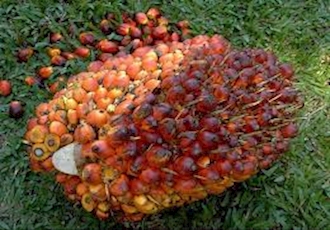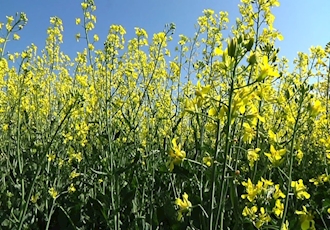Malaysia's palm oil inventory fell in February
KUALA LUMPUR (Nikkei Markets) -- Malaysia's palm oil stockpile fell in February to the lowest in four months but the smaller-than-expected decline failed to brighten prospects of prices of the widely used commodity.
Inventory fell 2.7% in February to 2.48 million tons from a month earlier due to a sharp fall in output, the Malaysian Palm Oil Board said in a statement. Still, analysts said the stockpile level came in above market expectations and cautioned of future supply recovery that could weigh on prices.
Production of palm oil in Malaysia and Indonesia, which collectively meet nearly 90% of the world's demand, is widely expected to rise in the coming months this year.
"I expect a recovery in production by April or May," said Phillip Futures' analyst David Ng. "In March, there'll be a longer harvesting cycle."
Output fell 15.7% month-on-month to 1.34 million tons in February, according to MPOB's data. Exports meanwhile fell 13.2% to 1.31 million tons in February despite a jump in shipments to India, the world's largest buyer of palm oil. The data is preliminary and may be revised later.
"Inventory remains relatively high," said JF Apex Securities' analyst Low Zy Jing. "We expect a flattish production growth and softening price amid a hefty inventory."
Prices of the edible oil--used in everything from cosmetics to snacks--have declined nearly 1.0% so far this year. A slew of forecasts issued by top analysts at a major industry conference in Kuala Lumpur last week showing a potential 11% dip in prices this year have been weighing on palm oil prices.
Apart from potential global supply increase of up to four million tons, analysts have flagged risks to prices in 2018 from rising availability of soybean - palm oil's main substitute - and higher import taxes in India.
A draft measure by the European Union to ban use of palm oil in biodiesel by 2021 is also pressuring prices. The E.U. was the second largest export destination of Malaysian palm oil in 2017 after India, accounting for 12% of the commodity's overseas shipments.
The most-traded crude palm oil futures for May delivery fell as much as 1.1% to 2,350 ringgit ($601.8) on Bursa Malaysia Derivatives.
Sime Darby Plantation, the world's top palm oil producer by acreage, rose 2.0% to 5.56 ringgit while the benchmark FTSE Bursa Malaysia KLCI was up 0.9%.
Source: Asian Review







